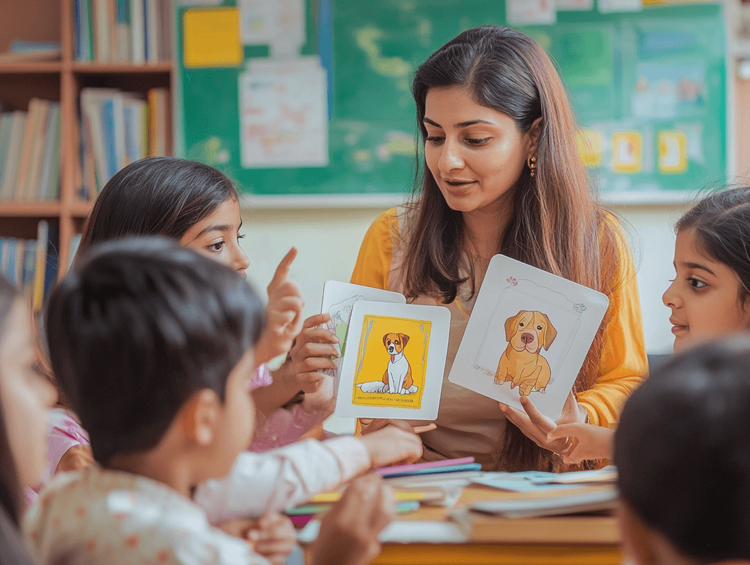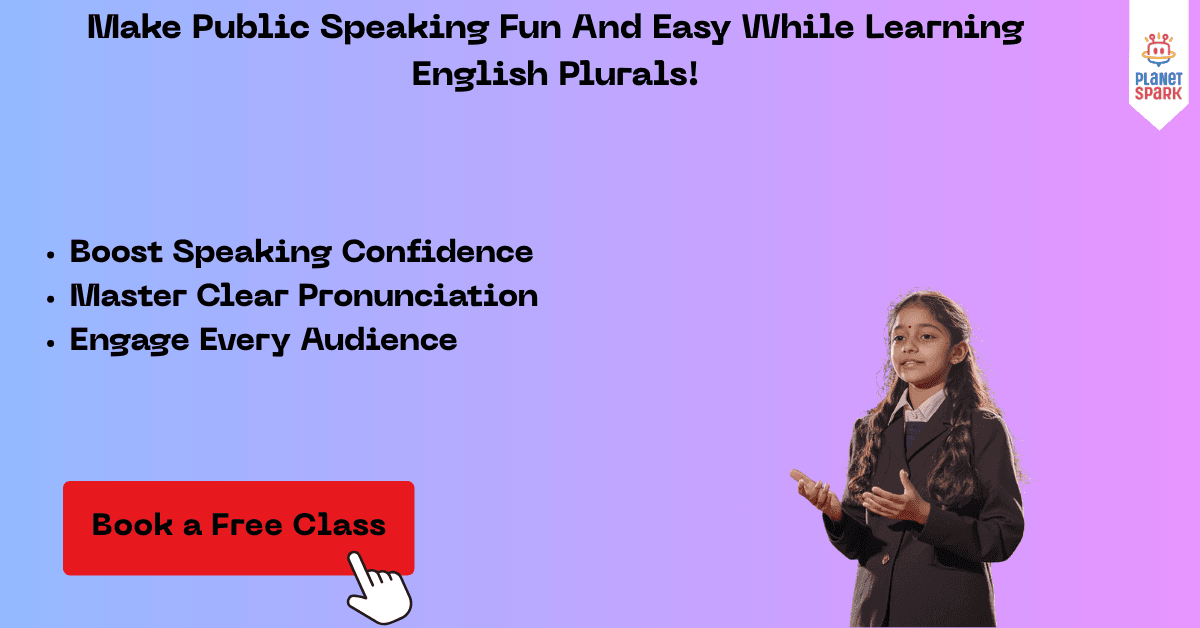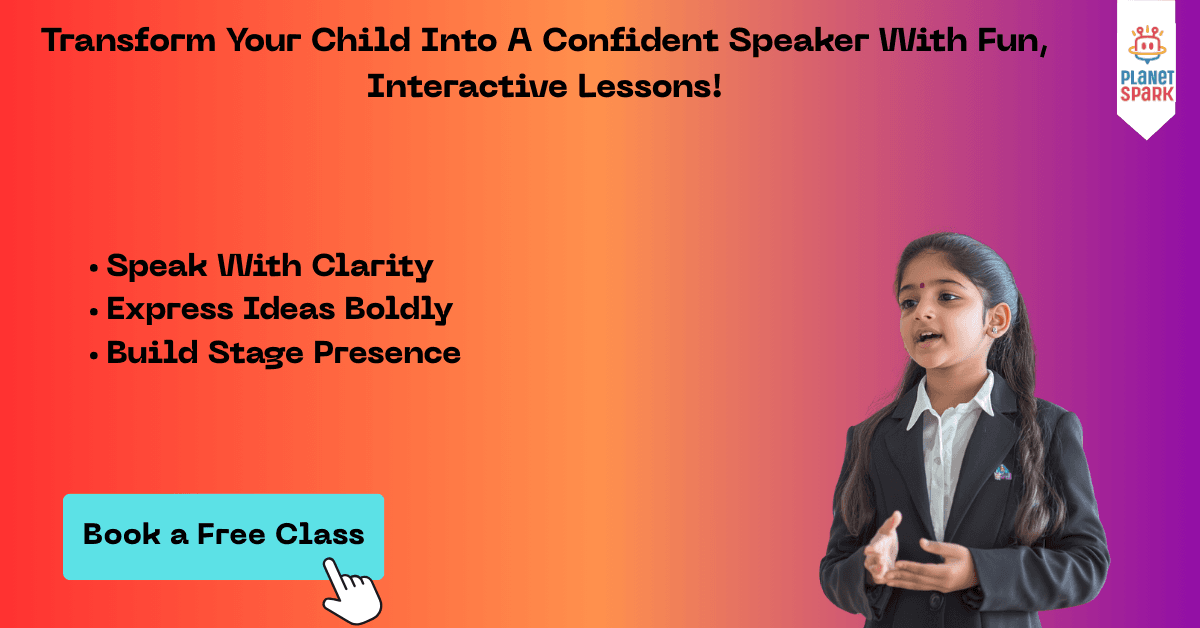Fun Guide to Plurals in English for Kids | PlanetSpark

Table of Contents
- What Are English Endings and Plurals?
- Why Do Endings and Plurals Hold So Much Importance for Kids?
- Common Rules for Pluralization
- Types of Plural Endings
- How To Make Endings and Plurals More Fun for Kids
- Importance of Teaching Plurals in Early Language Development
- Advice for Parents: How to Support Your Child's Grammar Lear
- PlanetSpark’s Role in Teaching Endings and Plurals
- Overview of PlanetSpark’s Public Speaking Course
- Conclusion
- Frequently Asked Questions (FAQs)
Understanding English endings and plurals is one of the foundational skills in grammar and communication. For children, mastering these seemingly small aspects of language early on helps build sentence structure, comprehension, reading fluency, and writing confidence. But why are these concepts so critical for young learners, and how can parents and educators make them engaging?
In this comprehensive guide, we'll explore the importance of English endings and plurals for kids, the different types, practical ways to teach them, and how PlanetSpark’s online Public Speaking and English programs empower young learners to excel.
What Are English Endings and Plurals?
Plurals refer to the form of a noun used to indicate more than one. In English, this is typically done by adding suffixes like "-s" or "-es" to the end of words. However, there are irregular plurals that follow different patterns.
Endings refer to the final sounds or letters added to a word to alter its form—including tense, number, or meaning. These include:
- "s" for plurals (e.g., dogs)
- "es" for certain consonant-ending words (e.g., boxes)
- Irregular transformations (e.g., child → children)
Teaching kids these rules gives them the tools to understand how words change, helping them with writing, reading, and speaking.

Why Do Endings and Plurals Hold So Much Importance for Kids?
Children are surrounded by plural words every day, whether in conversations, stories, or written text. Teaching plural rules helps children:
- Distinguish between singular and plural nouns
- Learn phonics and pronunciation patterns
- Develop writing accuracy and fluency
- Improve sentence construction
- Gain vocabulary and comprehension skills
At PlanetSpark, our grammar programs introduce endings and plurals through fun activities that ensure long-term retention.
Common Rules for Pluralization
Understanding the basics of plural rules is essential. Here are the key ones:
- Regular Plural Nouns
- Add "s" to most words (e.g., car → cars)
- Words Ending in -s, -sh, -ch, -x, or -z
- Add "es" (e.g., box → boxes)
- Words Ending in Consonant + y
- Replace "y" with "ies" (e.g., baby → babies)
- Words Ending in Vowel + y
- Just add "s" (e.g., toy → toys)
- Words Ending in -f or -fe
- Replace with "ves" (e.g., knife → knives)
- Irregular Plurals
- man → men, mouse → mice, child → children
- Unchanging Plurals
- sheep → sheep, deer → deer
Types of Plural Endings
Let’s break down the types of plural endings commonly encountered by children:
1. Plural Y Endings
- Baby → Babies
- Lady → Ladies
- Guy → Guys
2. Plural X or Z Endings
- Box → Boxes
- Fox → Foxes
- Quiz → Quizzes
3. Plural S Endings
- Bus → Buses
- Glass → Glasses
- Kiss → Kisses
4. Irregular Plurals
- Mouse → Mice
- Man → Men
- Tooth → Teeth
How To Make Endings and Plurals More Fun for Kids
Plurals can be tricky, but they can also be exciting. Here are some activity-based learning techniques:
- Flashcard Games: Use images and words to match singular and plural nouns.
- Team Competitions: Give plural lists and ask kids to find endings.
- Color-coded Word Sorts: Separate regular, irregular, and unchanged plural nouns.
- Story Creation: Ask kids to write or tell stories using a given list of plural words.

Importance of Teaching Plurals in Early Language Development
1. Enhances Vocabulary Learning. Plural forms help children rapidly expand their vocabulary.
2. Builds Phonics and Pronunciation Skills. Understanding how ending sounds change the meaning sharpens listening and speaking.
3. Boosts Reading Fluency and Comprehension. Recognition of plural forms aids in decoding and understanding longer texts.
4. Improves Writing Clarity. Correct pluralization ensures children write more accurate and grammatically correct sentences.
5. Sparks Creative Thinking: Manipulating word forms supports critical thinking and encourages language exploration.
Advice for Parents: How to Support Your Child's Grammar Learning
Parents play a vital role in reinforcing grammar rules at home:
- Read books aloud that contain both singular and plural nouns
- Practice pluralization through rhymes and songs
- Use plural nouns in everyday conversations
- Encourage writing short stories using new words
- Play grammar board games or online quizzes
PlanetSpark’s Role in Teaching Endings and Plurals
PlanetSpark is the ideal destination for mastering English endings and plurals for kids. Here's what makes us different:
- Interactive Curriculum: Designed to align with children's learning pace and styles
- Activity-Based Learning: Grammar taught through games, flashcards, storytelling, and role-plays
- Experienced Teachers: Skilled in simplifying complex rules for young minds
- Regular Assessments: Identify gaps and personalize learning accordingly
- Plurals Worksheets: Fun practice sheets and games for better understanding
Overview of PlanetSpark’s Public Speaking Course
PlanetSpark is not just about grammar; we are leaders in building confident communicators. Our Public Speaking Course includes:
1. 1:1 Personal Trainers for Every Child
- Personalized live classes
- Focused skill-building in fluency, grammar, and expression
2. Personalised Curriculum and Learning Roadmap
- Skill gap identification
- Custom progress-based modules
3. SparkX: AI Video Feedback Tool
- AI analyzes recorded speeches
- Tracks body language, grammar, sentence flow, and confidence
4. AI-Led Practice Sessions
- Simulated real-time public speaking scenarios
- Instant feedback and improvement cues
5. Spark Diary
- Daily journaling for writing development
- Enhances creativity and consistency
6. Gamified Learning
- Grammar Guru, Word Wisdom, and Quizzes
- Makes language fun and challenging
7. Structured PTMs
- Transparent child performance sharing
- Joint goal-setting with parents
8. Progress Reports
- Detailed evaluation of grammar, content, fluency, and confidence
9. Exclusive Learning Clubs
- Debate, storytelling, podcasting, and writing clubs
- Enhances real-world communication
10. Sparkline
- Safe platform to share speeches and stories
- Peer-to-peer recognition and feedback
11. Real-Time Recognition
- Competitions and showcases
- Regular encouragement and certification
Conclusion
English endings and plurals may seem like small topics, but they form the core of language comprehension and communication for kids. With a strong grip on these grammar rules, children can read fluently, write clearly, and speak confidently.
At PlanetSpark, our mission is to build these foundational skills through innovative methods, top educators, and technology-led instruction. Whether it’s learning plurals or becoming a confident public speaker, your child will thrive with us.
Start your child’s journey today. Book a FREE class with PlanetSpark!
Frequently Asked Questions (FAQs)
Q1. What Are Irregular Plurals?
Irregular plurals are nouns that do not follow the standard rules of adding "s" or "es". Examples: child → children, mouse → mice.
Q2. What Are Bare Plurals?
Bare plurals refer to plural nouns used without a determiner. Example: "Lions are dangerous."
Q3. What Is the General Rule for Plural Endings?
Most nouns add "s" or "es." If a word ends in a consonant + y, change y to ies. Some words have irregular endings.
Q4. What Are Plural Possessive Adjectives?
They show ownership for plural nouns. Example: "Their toys" (toys belong to them).
Q5. How Can I Make Grammar Fun for My Child?
Use games, flashcards, storytelling, and interactive apps like PlanetSpark.
Q6. Is Learning Plurals Important for Reading Skills?
Yes, recognizing plural forms improves vocabulary, decoding, and comprehension.
Q7. What Makes PlanetSpark the Right Choice for My Child?
From expert trainers and personalized learning paths to fun activities and AI-powered feedback, PlanetSpark delivers results through engaging methods.
Personalized Communication Report
Record a video to get a AI generated personalized communication report for your child

Hi There, want to try these
tips for your child with
LIVE with our expert coach?
Let's check your child's
English fluency
